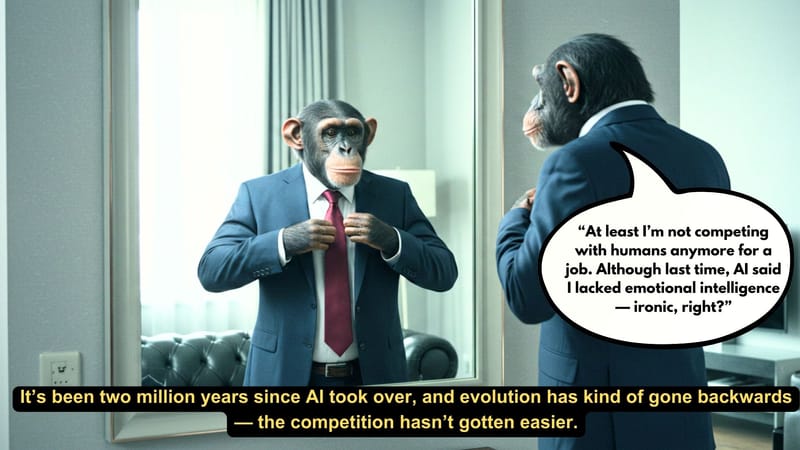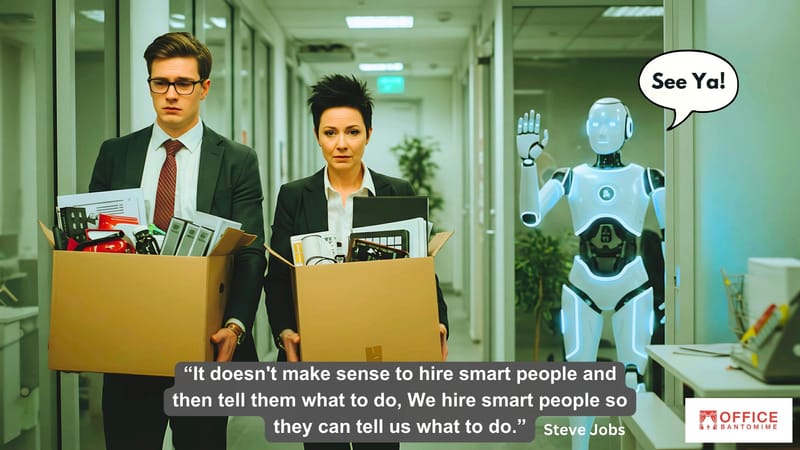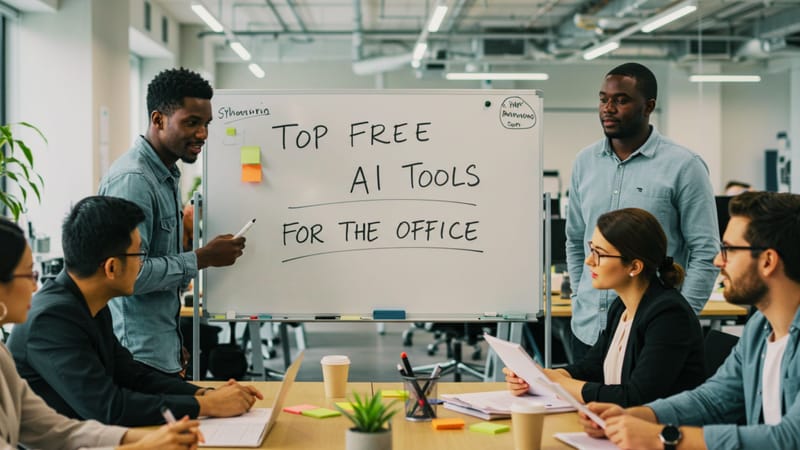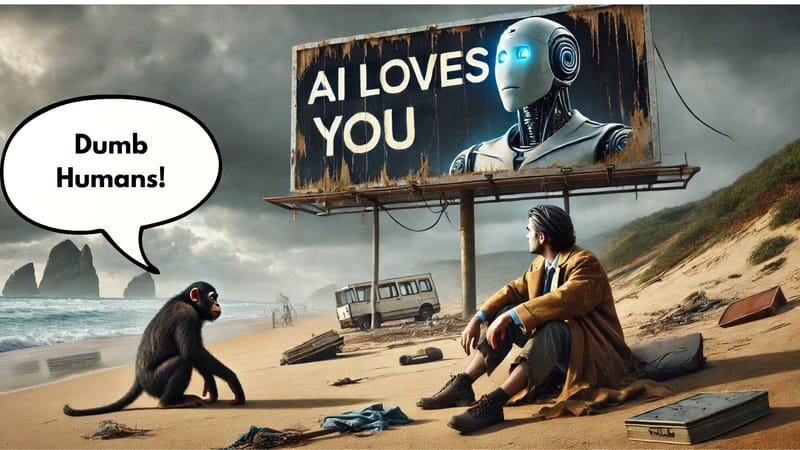"AI vs. Humans: Understanding the Potential for Workplace Conflict"
Dive into the complex relationship between artificial intelligence and human workers, uncovering insights and solutions to prevent conflict in the evolving workplace environment
Welcome to the Future
Artificial Intelligence (AI) is no longer just a concept found in science fiction movies, it has now become a reality. It is transforming how we work in offices and factories, making processes faster and more efficient. However, some people have concerns about the potential of AI to take over jobs that humans currently do. Despite the scepticism, AI has been around for several years and continues to evolve rapidly.
The Terrifying Prospect
Picture a scenario where you receive a message from a machine or are summoned to a virtual meeting, only to be informed by an AI representative that your services are no longer needed within the company because your role has been automated. How would you respond to such news? It's a chilling thought, made even more unsettling if the Human Resources department itself is operated by AI. In such a situation, where could one find support?
Consider another unsettling possibility: you find yourself among a mere handful of humans in a thriving organisation where ninety per cent of operations are handled by AI. It's akin to the age-old adage: control AI before it controls you.
Recall the historical instance when robots revolutionized the car manufacturing industry, displacing countless human workers from their jobs. It's a curious paradox, considering there are currently over 14 million individuals employed in car manufacturing worldwide.
AI: The Cool New Office Buddy or the Robot Taking Your Job?
Why We Love AI
Imagine dumping all the boring stuff you hate doing at work on someone (or something) else. That's AI for you. It's like having a super-smart assistant who's great at crunching numbers, organising stuff, and even spotting trends we'd miss. AI can make our work lives a whole lot easier and let us focus on the fun parts of the job. Also, imagine a colleague agreeing to do this for you with no resistance as in "I'm far too busy", or "That task is above my paygrade". AI would just do it.
But... There's a Catch
Not everyone's open to the idea of working with AI. There's a lot of chatter about robots stealing jobs, making human skills less needed, and turning the workplace into a scene from a dystopian movie. The fear is real: what's our place in a world where machines can do our jobs, maybe even better than us? Remember that coworker who would join the business and would be a super achiever? They are the last of your worries when AI is the ultimate super achiever.

The Real Deal: Fight or Team Up?
The Tug of War
It's tempting to see it as a showdown—humans vs. machines. But that's looking at it the wrong way. It's not about competing with AI but figuring out how we can all get along in the same playground. Because let's face it, AI's not going away and will only improve as time goes on.
High Five to AI
The cool part? We don't have to fight AI; we can team up with it. Imagine AI handling the tedious tasks while we get to tackle the creative, big-picture stuff. It's about playing to our strengths and letting AI boost our superpowers at work.
How to Make It Work
Update Your Skill Set
As the workplace evolves, so should we. It's time to level up, learning new tricks that let us work with AI, not against it. Think of it as upgrading your brain's software to keep up with the times.
Build a Buddy System

Creating a vibe where humans and AI are buddies, not enemies, is key. It's about blending AI's techy talents with our human touch—creativity, empathy, you name it. This way, we're not just coexisting; we're thriving together.
So, What's Next?
The whole "AI vs. humans" thing is only a big deal if we make it one. Instead of worrying about a workplace war, let's focus on how AI can be the sidekick we never knew we needed.
It's about finding that sweet spot where technology lifts us, not pushes us out. Here's to a future where we work smarter, not harder, with a little help from our AI friends.







